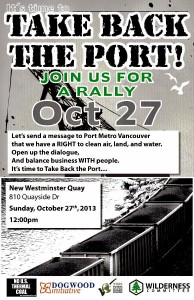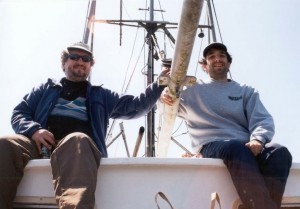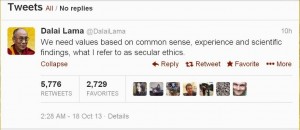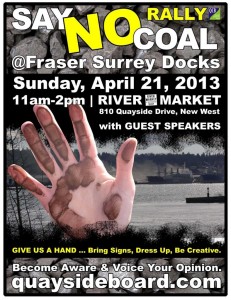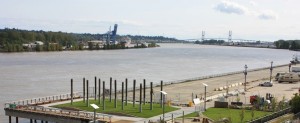Long time readers (Hi Mom!) know I have been occasionally critical of Port Metro Vancouver. It is funny, because I work with people from the Port on occasion, and have healthy, respectful relationship with many Port staff. The first property upon which I ever led an environmental investigation during my consulting days was a Port property. They were great to work for because of their professionalism, straight-forward communications, and high competence of their technical staff.
So why the current hate on? Why am I taking part in, and encouraging you to participate in, a Rally on Sunday in New Westminster, with the Theme “Take Back Our Port”?
You can read about it in the Newspaper, or show up to get details, but this is about accountability.
Port Metro Vancouver is, to quote their website,
“a non-shareholder, financially self-sufficient corporation, established by the Government of Canada in January 2008, pursuant to the Canada Marine Act, and accountable to the federal Minister of Transport, Infrastructure and Communities”.
They are crown corporation who answer only to Lisa Raitt (who, like any other Conservative MP, answers only to the Prime Minister’s Office). There is no local representation of the Port, except a Board of Important Business People. They do a significant amount of public outreach, but there is no accountability to local residents in how they fulfill their mission, which is, again to quote the Website:
To lead the growth of Canada’s Pacific Gateway in a manner that enhances the well-being of Canadians
What is “Canada’s Pacific Gateway” exactly? Something to do with the Province, apparently, if you follow that link. But make no mistake, the Port doesn’t answer to the Premier, even if she leases her office space from them.
Regardless of catch phrases, the depth of the influence this unaccountable organization has on your community should concern you. A few of the hot-button issues that we talk a lot about in New Westminster point right back at the port: :
Coal: People in New West are very aware of the current proposal to introduce bulk coal exports to Surrey Fraser Docks, right across the Fraser from the Quayside. Most of you probably don’t know about the other two coal terminals in Vancouver are seeing expansion (Westshore Terminals expanded by 40% in 2012, Neptune Terminals in 2015 by 50%). With each expansion increases the number of open coal-carrying rail cars running through our neighbourhoods, increased air pollution, and increased climate impacts as we move the dirtiest fuel ever known to man. Although this expansion improves the financial bottom line of the Port, they are the agency charged with providing an “Independent” Environmental Assessment for the projects. They also make it clear that greenhouse gas impacts of their operations are not part of the assessment. GHGs are not their problem. That is the problem of the Federal Government, they say.
Trains: Train operations are dictated by Port needs. Trains are good, they are the most efficient way to move goods across land by far. If we are going to migrate our economy to a more sustainable path, trains will be a fundamental part of that economy. However, inflexibility in their operations, often dictated by Port needs, means that mitigating community impacts is difficult, and will always come in second place to logistical needs to keep things moving, as quickly as possible.
Further, impacts on the community are exacerbated by a failure to invest on rail infrastructure. The New Westminster Rail Bridge is more than 100 years old, and represents the largest goods-movement bottleneck in the region. This bridge, much like the Port, belongs to the Federal government, but there is simply no interest in replacing it. Therefore, more goods have to be moved by truck to bypass this bottleneck. Until this bottleneck is addressed, the re-alignment of the rails that run through New West cannot take place, and so we are all in a waiting pattern, hoping the rail/road conflicts will get better. Old rail infrastructure is also, like anything else, less safe infrastructure.
Trucks: Everyone in New Westminster knows we are being buried in truck traffic. The Port knows, but it frankly does not care. With the rail bottleneck, and complete disinterest from the Port in investing in short-sea shipping, containers are coming off ships at Burrard Inlet or Delta, then going on trucks, through our neighbourhoods and past our schools, to get to places like Port Kells or Port Coquitlam, to be put on trains, it’s clear moving stuff by truck is not an unfortunate consequence in our communities, it is the business plan.
This is further evidence when one looks at more recently-developed port lands, like Port-owned lands lining the north side of Queensborough and currently being filled with truck-only warehouses. Or look at the south side of Richmond, where the Port owns more than 750 Acres of waterfront land full of truck-only warehouses? These properties have something in common: no goods move on or off ships at these prime waterfront locations. Which brings us to:
Land Use: There has been an ongoing issue about the port encroaching on agricultural land, the threatening the ALR. We don’t have farmland in New Westminster, but regional food security should still concern everyone who hopes to eat for the next few decades. However, the Port is in a unique situation, where they can buy up large pieces of ALR land, which is relatively inexpensive at between $50,000 and $200,000 per acre (See Pages 28 and 29 of this report, I don’t make numbers up ) because of ALC restrictions on its use. Then, as a Federal Agency, they can, with a wave of the hand, remove the land from the ALR, and develop it for Industrial purposes. With undeveloped industrial land in the lower mainland selling for between $1,000,000 and $2,000,000 per acre, this seems like a pretty good business plan. Port puts up truck warehouses, asks the City to provide roads to service the trucks, and their financial self-sufficiency is all but assured. Good work if you can get it.
There is a strange meme being created by the current Port CEO– that an “Industrial Land Reserve” is needed to protect Port-related development. This is idiotic when viewed in the light of the equation above. Any land can be made industrial- you just need to pay the rates for that land that the market for industrial land requires. Further, once land become industrial, it can be re-purposed for other uses (see False Creek). The ALR land exists, because that is the one use that cannot be compatible with other uses- once a farm is lost to industrial development ,that land will never again be productive for traditional farming.
The current Port activity in Queensborough is a perfect model of this. High-value industrial lands were bought by the Port on the north side of Queensborough, east of the QB Bridge. Warehouses are being built to move things on and off of trucks. There is no plan whatsoever to use the waterfront location to move things on and off of boats; pier infrastructure is not even being built. The Port now owns the waterfront, and have paved it for the storage of trucks and trailers (with complete disregard to Riparian Areas protection standards or laws, which do not apply to them, because they are a Federal Agency, and with the closure of FREMP, the protection of the Fraser River riparian areas and waterfront habitat is now overseen by – you guessed it – the Port). The City’s and neighbourhood’s dreams of waterfront trails on Queensborough cannot be fulfilled because the Port will not allow a right-of-way through this same waterfront. Meanwhile, the trucks servicing these warehouses are backing up on Duncan Street and Derwent Way, creating havoc at the Howes Street intersection, and the Port is not responsible for any of the cost of improving this infrastructure. Meanwhile, the City has no say in any of this. Which brings us to…
Transportation. “Canada’s Pacific Gateway”, as mentioned above, is code for building roads and bridges. Under the guise of “goods movement”, the Port has been the main champion for spending taxpayer’s money on freeways and bridges that are out of scale for the region’s declining car use, unsustainable in their financing, and in complete contradiction to every regional transportation and land use plan created in Metro Vancouver over the last two decades. While everyone sat around for 20 years wondering where the money for Evergreen was going to come from, and while the Province floats a referendum to avoid having to make a decision about supplying enough funding the TransLink to keep the buses running, the Province has rushed ahead with $5 Billion on road expansion – from the Golden Ears Bridge (which is further crippling TransLink with debt) with the Pitt River Bridge (which is accelerating the removal of land from the ALR because of the traffic problems it has created), with the SFPR (which is a Port subsidy that destroys farm land and neighbourhoods), with the Widest Bridge in the World(tm) (which is also failing to meet its traffic targets and is looking like a long-term taxpayer pain), and now with the Tunnel Replacement to Nowhere. The Port has its fingers in every one of these decisions. They switch from consulting with the community to lobbying the Province in a flash, and then they are the agency that helps provide the Environmental Assessments for the projects. And greenhouse gasses? Someone else’s problem.
All of these issues are central to the livability of our City – of New Westminster, yet at every point, the Port’s only responsibility is to keep the money moving.
So come out to the family-friendly rally Sunday, and see how numerous people and groups feel about being kept out of the decision on how our community will develop, and how the livability of our region will be protected.
